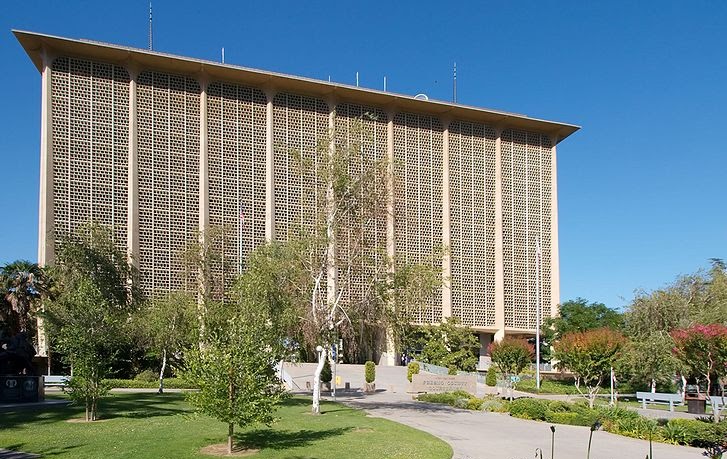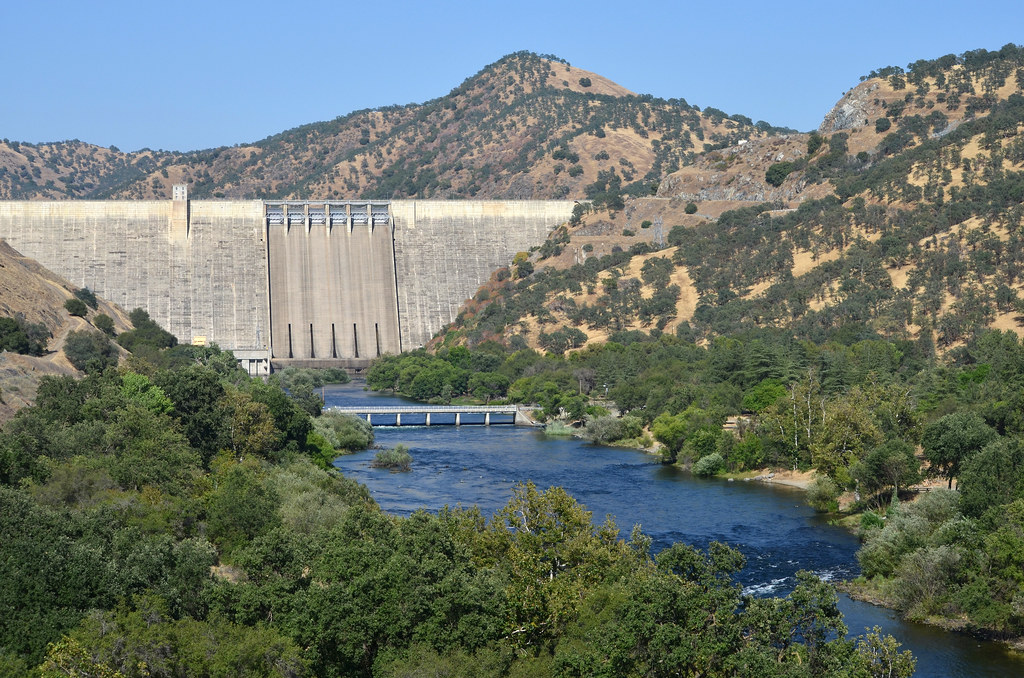Fresno County Property Tax

Fresno County is right in the heart of California’s Central Valley—an agricultural wonderland with the richest soil in the United States. As a real estate investor, it’s important to consider factors such as property tax. Here are a few things that investors and property owners should know about owning property in Fresno county.
4 Things Investors and Homeowners Need to Know About Fresno County Property Tax
- How Fresno County Property Taxes are Calculated
- Property Tax rates for Fresno County
- How to Pay Your Fresno County Property Taxes
- How to Lower Your Tax Liability
The amount of taxes you’ll pay for owning property in Fresno County depends on the value of your home, or at least its value according to the Fresno County Assessor’s Office. Secured property taxes will be collected by the Tax collector, which is granted the power to tax property owned in Fresno County, and leverage property tax revenues to fund public works and special assessments.
1. How Fresno County Property Taxes are Calculated
This value of your property is determined by the market value at the time it was transferred to you, and that value increases 2% every year. If you improve the value of your property through an expansion or remodel, this will trigger a reassessment.
The property tax you pay will be no more than $1.00 for every $100 of your property’s assessed value—in other words, the property tax rate for Fresno County property taxes is 1%.
A general tax levy will be added for special taxes and city or district assessments. These bonds are approved by voters and typically cover special projects or public utility upkeep—from things as prosaic as paving streets to uniquely localized as forest service employees in nearby Kings Canyon. Ongoing additions to your tax bill might include special taxes for education and safety (police and fire).
Like any jurisdiction, the county board of supervisors is transparent about financial reporting, the county budget, and how tax revenues derived from taxpayers are allocated. You can find this information on your bill or contact the County of Fresno for more information about your taxes.
2. Property Tax Rates for Fresno County
While the general levy in California is capped at 1%, taxes will vary from area to area. This is not only due to special taxes to fund public works and schools, but also because property values vary from area to area. However, Fresno is not like most counties in California, which either exhibit a huge disparity in home prices between zip codes or have high prices throughout. In many areas of the county—including the City of Fresno and its immediate environs—home prices hover around a reasonable $250,000 (a rarity in California).
You will find seven-figure properties here and there (in terms of single-family homes) but by and large, Fresno is an affordable, somewhat untapped paradise in the California real estate market. This means your tax bill will probably be a reasonable $2,500 to $3,000, which is much better than the $5,000 to $10,000 homeowners are paying just an hour or two away in the Bay Area. The fact that your tax payment can be made in two installments makes this amount even better; paying $1,500 once in the fall and once again in the spring doesn’t seem so onerous.
With property values so comparatively low, you might wonder if home values ever dip below the assessed value, especially because Proposition 13 mandates 2% annual growth. Sometimes, the current market value of a property will dip below the assigned value of the tax assessor, which grows by 2% annually. Thankfully, Proposition 8 allows the lower of the two values to become the taxable value of the property.
If you want to know the tax rate or exact amount of taxes paid for a particular parcel, you can actually look up the parcel number online on the website of the Fresno County Tax Assessor. The Tax Collector’s Office, County Treasurer, and supervisors also work in conjunction to put out published information that complies with the California Revenue and Taxation Code every tax year. Researching this information is a great way to avoid an unexpected tax burden.

3. How to Pay Your Fresno County Property Taxes
Tax bills are mailed on November 1. Since it is the responsibility of the property owner to pay taxes whether or not they receive their tax statement, if you haven’t received one by November 10, the Fresno County Assessor recommends checking with their office. Bills can be paid in two installments, the first of which is due anywhere between November 1 (when they’re mailed) and 5:00 PM on December 10th. The second installment payment is due anywhere between February 1 and 5:00 PM on April 10th.
If you improve the value of your home, you will be mailed a supplemental tax bill for that year. Check the date of that bill to know when it must be paid. If for some reason, an improvement reduces the value of your home, you might be mailed a tax refund.
The Fresno County Tax Collector recommends paying your bill by mail and using the return envelope sent with your bill. If you prefer, you can pay in person at the Treasurer Division of the Auditor-Controller and Treasurer-Tax Collector’s office. You can also pay over the phone by calling 559-600-3482 and using the automated system. Please note that an added fee of 2.25% will be applied to credit card payments, $3.29 for debit card payments, and $1.50 for e-check payments.
You can also make your payment online, though the Fresno County Tax Collector’s website posts lengthy warnings about the availability of their online system, so your mileage may vary.
If your tax bill goes unpaid by the due date, a 10% penalty will be applied after the first installment becomes delinquent. After the second installment becomes delinquent, an additional 10% penalty will be applied, along with a $10 surcharge. If you still haven’t paid your tax bill by June 30th, your property tax will default, and additional fees and penalties will accrue. If your defaulted balance lingers too long, your property could even end up in a county tax sale.
If your property is already under threat of a tax lien from the government, or a lien is already imposed, it is highly recommended that you reach out to a professional tax advisor for legal assistance. You can also contact the tax collector’s office and make a plan to pay property taxes that are overdue so you can avoid court proceedings like a foreclosure or tax deed served against you.
4. How to Lower Your Tax Liability
The property tax bill for Fresno County is not nearly as hefty as it is in other parts of California—but every property investor still wants to know how to save money. After all, a penny saved is a penny earned … and available for future investments.
One strategy you could take to reduce your property tax bill is to contest the assessed value of your home. Your first stop will be speaking to the County Assessor’s Office directly. If you can’t reach an agreement with them, there is an Assessment Appeals Board that reviews cases filed between July 2 and November 30. If you decide to take up a case with the appeals board, you should still pay the tax imposed by the deadline. If the appeal is successful, a refund will come your way—the Assessment Appeals Board is also the Board of Equalization, as appointed by the Fresno County Board of Supervisors.
Another strategy you can leverage is to pay your property taxes in one lump sum as soon as possible in the calendar year (namely, as close as possible to November 1 when the bills are mailed), and then write them off when you file your income taxes at both the state and federal level.
Local governments in California can also grant a special exemption that can help defray the cost of your tax bill if your property is owned or involved with a veteran’s church or non-profit organization. You can still inhabit the residence or rent it out, but you may have to clarify issues like a possessory interest tax with an accountant. Information about these property tax exemptions must be obtained from the Assessor’s Office directly.
Under Proposition 60, seniors over the age of 55 can sell their home and transfer the value of their old home into their new home as the assessed value, as long as both homes are in the same county. Currently, Fresno County does not honor Proposition 90, which allows seniors to transfer value across county lines.
Working with a qualified accountant like Anderson Advisors can also help you explore some other more complex money-saving strategies to avoid getting hit hard by real estate taxes, such as setting up a trust or leveraging some tax planning strategies. They may also be able to inform you if looking into a property tax appeal is worth your time.
How Does Fresno County Compare to Other Cities in California and the United States?
The low housing prices in Fresno County, compared to the rest of California, make it a viable marketplace to pick up properties for investors interested in flipping houses. While investors in other parts of California might need to leverage additional strategies (for example, like purchasing properties at more affordable prices in venues like a tax sale), investors looking to acquire real property in Fresno county can likely finance a property through more traditional means.
Investors playing the long game might also be interested in acquiring property in the area. Eventually, the sky-high prices of the Bay Area and greater Los Angeles metro area are going to drive homeowners and renters into the Central Valley.
To that end, multifamily housing also becomes appealing. An investor might acquire a property with a few units and find some renters to cover the mortgage. One thing to keep in mind is that while property values are lower than the rest of California, rents are lower as well, with the average apartment rent around the time of this article hovering around $1,000 per month. However, unlike other parts of the state, the lower housing prices make single-family home rentals a greater possibility, since the rent can certainly be higher than that of an apartment unit. Whether an investor is flipping homes or renting them, it’s important to protect your personal assets by talking to a qualified lawyer or firm about setting up an LLC for real estate investing.
Fresno County is one of the last untapped regions of the California real estate market. The bulk of its economic activity circles around agriculture, with nearly 33% of the jobs in the area related to farming in some way. However, the City of Fresno itself has seen some revitalization in recent years, and there has been some diversification toward other industries. Similarly, in recent years, the city of Clovis has come on the radar screen as an appealing area for parents; there are a number of parks in the area, and national attractions like Yosemite. Investors with real property geared toward family rentals might take this into consideration.
While it isn’t a major cultural and business hub like the Bay Area or Los Angeles, the cost of living is much more affordable. For example, while the sales tax in San Francisco is 8.5% and the sales tax in Los Angeles County is 9.5%, sales tax in Fresno County is slightly less than 8%.

Fresno County Property Tax
Fresno property values are reasonably low, and the county is an area of untapped potential. The economy is strong, and Fresno County is actually the number one agricultural county in the entire country. In years to come, Fresno County will become an appealing option for California residents fleeing sky-high costs of living in other parts of the Golden State.
Real estate investors contemplating the idea of acquiring some property in the Golden State might find that the Central Valley—and Fresno in particular—yields greater possibilities for growth than regions like the Bay Area. Certainly, the lower cost of property makes it more appealing for investors who are just starting out to set down roots in California.
3 Steps to Create an Invisible Investor Strategy
The greatest mistake that people make when it comes to asset protection for real estate is not understanding the risks that are waiting out there for them. This eBook reveals the structure you should follow to ensure your hard earned money is protected from frivolous lawsuits and costly tax mistakes.